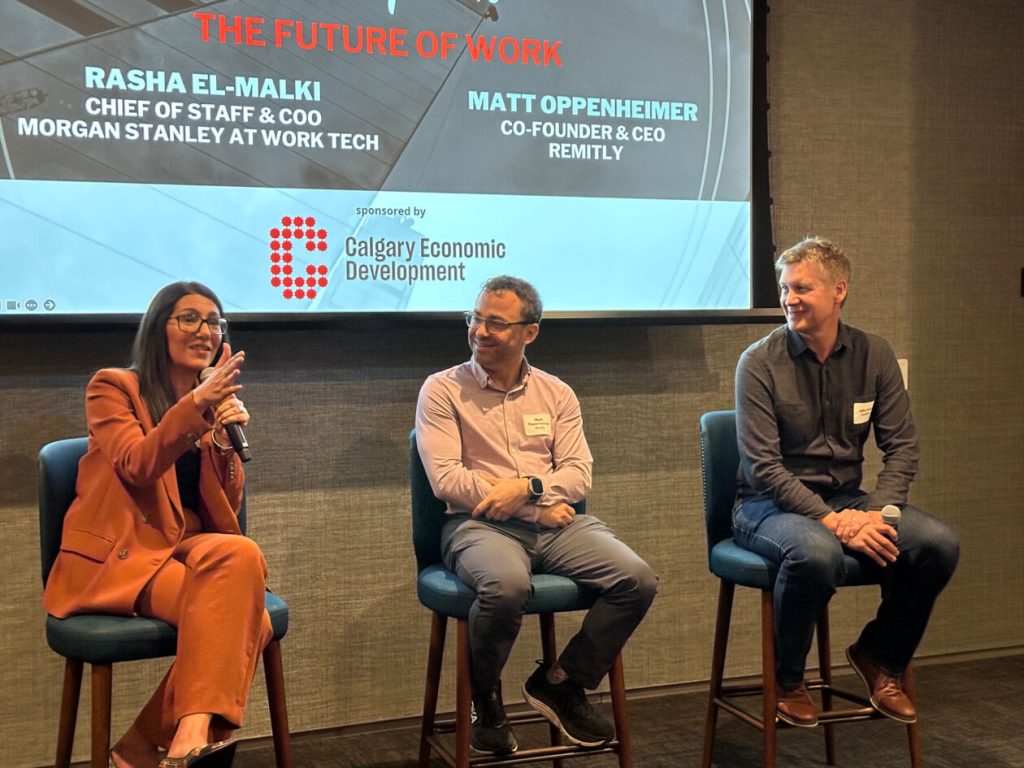In a recent panel discussion on the “Future of Work,” tech leaders Matt Oppenheimer from Remitly and Rasha El-Malki from Morgan Stanley at Work Tech shared their approaches to hybrid work mandates. Remitly expects its employees to be in the office 50% of the time, while Morgan Stanley in Calgary encourages workers to come in three days a week. El-Malki emphasizes flexibility in this policy, allowing employees to choose when they work from home as long as they remain productive. Both leaders believe that being in the office offers opportunities for collaboration, career development, and absorbing company culture.
To incentivize employees to come into the office, both companies offer free lunches on certain days, but the draw is not just the food. Oppenheimer explained that employees want to interact with their colleagues and get the value of being in the office. Both Remitly and Morgan Stanley have reorganized their workplaces into “neighborhoods” to facilitate interactions among team members. El-Malki also highlighted the professional benefits employees gain from being in the office, such as networking opportunities and exposure to different roles within the company.
The leaders described their workplaces as having cultures that make being in-office a desirable option. They emphasized being personally available to engage with employees, offering mental health resources, and supporting community volunteering. El-Malki stressed the importance of building a reputation and brand for oneself within the company, which can lead to career growth. Both leaders believe that during times of uncertainty, employees look to company leadership for guidance and support.
Overall, Oppenheimer and El-Malki’s strategies for creating a hybrid work environment revolve around trust, flexibility, and incentives rather than enforcing strict return-to-office policies. They believe that emphasizing the benefits of being in the office, such as collaboration and career development, can encourage employees to come in voluntarily. Both companies have implemented measures to make the office environment more engaging, including neighborhood-based workspaces and opportunities for networking and exposure to different roles. By creating a positive office culture and being personally available for employees, the leaders aim to make being in-office a rewarding and valuable experience for their teams.















